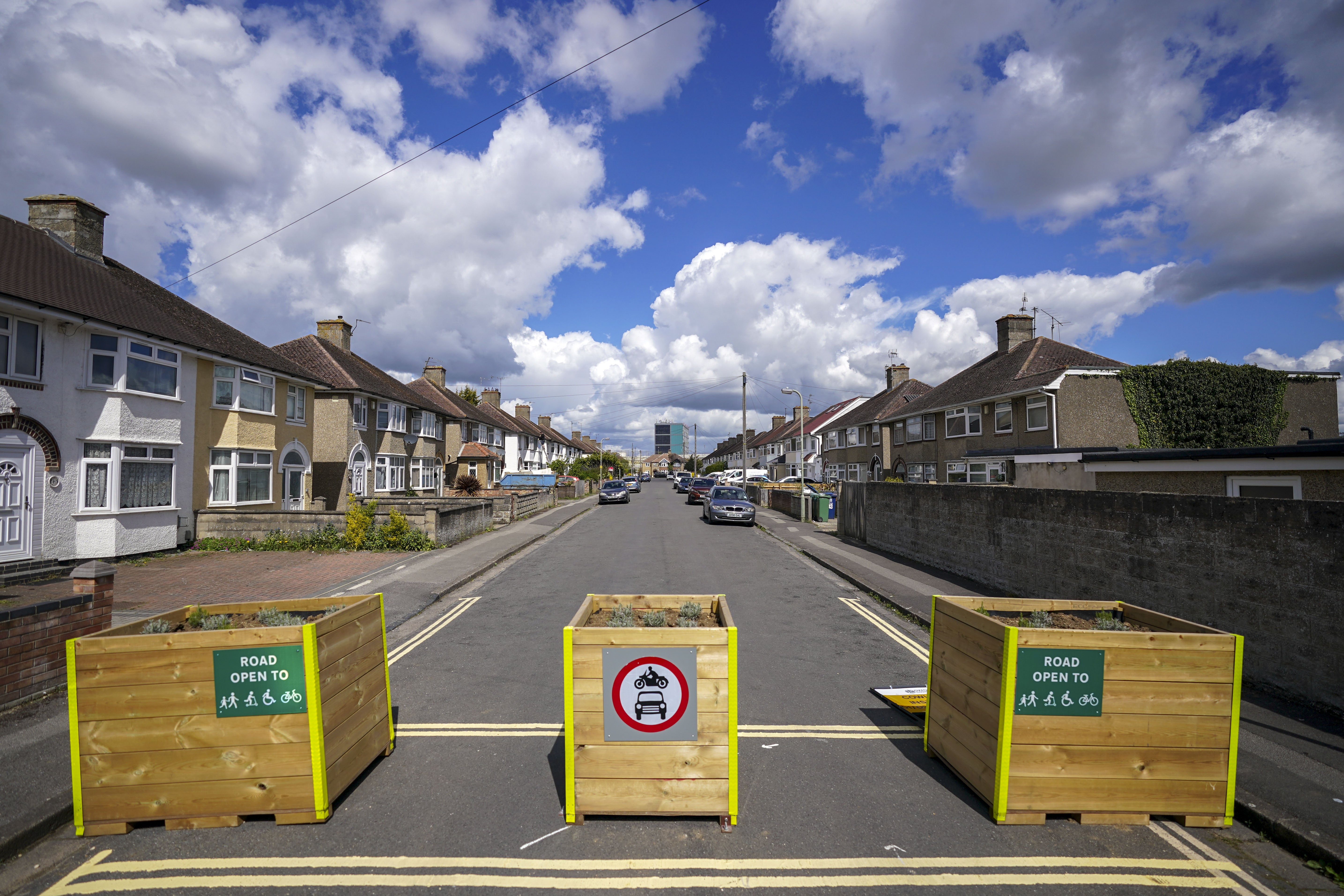A local council’s plan to cut traffic became a global conspiracy theory
Officials at Oxfordshire County Council were surprised to see their plan flash up on the radars of conspiracy theorists in Canada, Australia, and the United States, Matt Mathers reports


It is nicknamed the ‘City of Dreaming Spires’ for its picturesque Anglo-Saxon architecture, but for those trying to rid Oxford of its traffic congestion, things on the ground resembled more of a nightmare when they found themselves at the centre of a global conspiracy theory.
It all started in October last year, with a relatively simple idea - the local council wanted to split the city into six different districts and reduce traffic by introducing ‘filters’. Under traffic filter rules, residents will still be able to travel as much as they like between the districts but, during certain times of the day, may need to take a different route, such as a ring road, if they want to travel by car.
The idea is to try to develop a “15-minute city” of low-traffic neighbourhoods (LTN), in which residents would be just a short distance from accessing essential goods and services.
Under the plans, Oxford residents will be free to use their cars as much as they like within their district and will be given free permits allowing them to drive to other districts on 100 days a year.
Those who exceed this limit could be fined by as much as £70 per day or journey.
A maximum of three permits per household will be allowed if there are several adults with cars registered to the address and the restrictions will take effect between 7am and 7pm, seven days a week, in four of the six districts, but not on Sundays in the other two.
Buses, coaches, taxis, delivery vans, HGVs, motorbikes, mopeds and bicycles will be exempt and there will also be exceptions for blue badge holders and people with caring responsibilities.
Bicycles, mopeds, motorbikes, HGVs, delivery vans, taxis buses and coaches will be exempt.
The planning affairs of small and medium-sized English cities do not often elicit much attention on the international stage, although low-traffic neighbourhood schemes - rolled out in multiple council areas across the country - have proved an exception.

Officials at Oxfordshire County Council were rightly surprised to see their plan flash up on the radars of conspiracy theorists across the Atlantic in Canada, Australia, and the United States and be used to push baseless claims of climate change lockdowns in a post-pandemic ‘Great Reset’ era, orchestrated by the World Economic Forum.
Jordan Peterson and Nigel Farage were among those criticising the plans, with a GB News host describing Oxford’s ‘15-minute’ cities as a “surveillance system” that would make “Pyongyang jealous”.
Vision News, which describes itself as an ‘independent news site’ funded by subscribers, carried a story headlined, “Oxfordshire County Council Pass Climate Lockdown ‘trial’ to Begin in 2024”.
It falsely stated that “anyone wishing to leave their zone will need permission from the council”, with the outlet claiming that the council had decided “who is worthy of freedom and who isn’t”.
Despite fact-checks by Reuters and USA Today, the story spread like wildfire on social media platforms such as TikTok and YouTube. Vision News, which appears to be based in the UK, says it was set up “by a group of journalists, scientists, and businessmen in response to the increasingly bias and ideologically based journalism published by the BBC.”

Outrage at the plan culminated in a protest on Saturday which saw thousands of people from across the country take to the streets to voice their displeasure at a local council’s blueprint to cut traffic jams.
And while some of the opposition was local and appeared to be based on genuine and moderate concerns about potentially longer car journeys and access to roads to certain roads and specific times, others in attendance held more hardline views.
“With these six zones you’ve got in Oxford it’s like an open prison,” one woman, dressed in a black and white prison custom, said.
Police estimates said that around 2,000 people were involved in the main protest, which met on Broad Street then marched down Cowley Road to Manzil Way, causing a series of road closures, more gridlock - and more traffic.
Piers Corbyn, brother of former Labour leader Jeremy and one of the more recognisable faces in conspiracy theory circles, was there to show his opposition to the plan.
“I support the people of Oxford opposing these 20-minute cities [and] smart city plan. We’re also opposing all zoning all over the country. They’re all about controlling you, charging you money and promoting the climate con,” the former weatherman said.
“There’s no such thing as man-made climate change and that’s been used as an excuse to justify all sorts of tyrannical moves and we oppose them all,” he added.
The more extreme elements were not confined to the streets of Oxford over the weekend. Last week, a Conservative MP asked in the House of Commons for an inquiry into the “international socialist concept”, arguing that the schemes will “cost us our personal freedom”.
Fears of an appearance by members of the ‘neo-Nazi’ group Patriotic Alternative were unfounded as the protest went by in a mostly peaceful manner, although there were some minor skirmishes between ‘anti-fascists’ wearing balaclavas and anti-lockdown campaigners
Thames Valley Police said it had put in place a "proportionate policing presence" due to the large numbers of people who attended the post
Posting on Twitter, TVP Oxford said: "Our officers are facilitating peaceful demonstrations, supporting the public’s right to protest whilst keeping the community safe."
The council says the measures are essential to reduce harmful traffic and emissions in the city.
“Oxford is a medieval city with roads that I can’t even believe were that brilliant during the days of horse and cart,” Duncan Enright, the Oxfordshire County councilllor leading on the policy told The Sunday Times in October last year.
“The traffic problems in Oxford are not new, and we are determined to do something about it.”
This article was amended on February 22 2023. A previous version incorrectly referred to Oxford City Council; Oxfordshire County Council is in fact responsible for managing highways in the area. It was further amended on March 16 2023 to more accurately describe the traffic ‘filters’.






Join our commenting forum
Join thought-provoking conversations, follow other Independent readers and see their replies
Comments